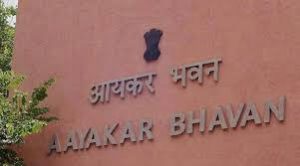 The date you actually need to focus on is March 31, because that is the last day to file revised and belated income tax returns (ITR) for assessment years (AY) 2016-17 and 2017-18, with interest, if any, for late filing. This is not to be confused with the deadline for filing taxes for the current financial year, which is on or before July 31. Last year this deadline was extended till August, but the gesture may not be repeated.
The date you actually need to focus on is March 31, because that is the last day to file revised and belated income tax returns (ITR) for assessment years (AY) 2016-17 and 2017-18, with interest, if any, for late filing. This is not to be confused with the deadline for filing taxes for the current financial year, which is on or before July 31. Last year this deadline was extended till August, but the gesture may not be repeated.
So if you are yet to file older ITRs, “there’s still time” to “come clean” as a recent advertisement put out by the income tax department reminds folks. The ad goes on to exhort companies, firms, LLPs, trusts, associations and political parties (whose income prior to claim of exemptions exceeds the minimum chargeable to tax) to file taxes. Similarly, individuals earning over Rs 2.5 lakh have to pay income tax while the exemption limit for senior citizens (aged 60-80 years) is Rs 3 lakh and that for very senior citizens (over 80 years) is Rs 5 lakh.
“If you have deposited large amounts of cash in your bank account or made high value transactions, please consider the same while filing income tax returns,” says the communication, adding that “Non-filing or incorrect filing of return of income may result in penalty and prosecution”. The easy way to do it is online, either by logging into the tax department’s e-filing website (incometaxindiaefiling.gov.in) or the likes of Cleartax.com and Taxspanner.com, which are far more user friendly. Keep in mind that failure to file returns for the AY 2017-18 by March 31 means no second chances.
Belated filing, of course, poses serious drawbacks. Not only do you lose the opportunity to avail of select exemptions and carry forward losses (other than house property loss) for the assessment years for which ITR were not filed, you may have to shell out extra as interest under section 234A, perhaps even sections 234B and 234C, which deal with advance tax. The latter is applicable on all individuals with a tax liability exceeds Rs 10,000 after your employer has deducted the TDS.
For any defaults in filing your ITR, according to Cleartax, “you will be charged an interest amount of 1% per month (simple interest) on the tax amount outstanding. This interest will be calculated from the due date applicable to you for filing of return of the applicable year till the date that you actually file your return.”
Here’s an example. Assume your total tax outstanding is Rs 1 lakh and you forgot to file your return. Your tax liability will calculated at 8% (8 months late till the end of the assessment year on March 31) of Rs 1 lakh, or Rs 8,000, over and above the tax amount that you are due to pay in any case.
That apart, “a penalty of Rs 5,000 shall be levied under section 271F”, says the FAQ on the income tax website. With effect from AY 2018-19, a new section 234F will come into play, under which the penalty for ITRs furnished on or before December 31 is Rs 5,000, but double that amount for later filings. However, penalty “shall be levied @ Rs 1,000 if total income does not exceed Rs 5,00,000” and if the tax evaded “exceeds Rs 25 lakh the punishment could be 6 months to 7 years” adds the website.
Also keep in mind that silly mistakes often creep in when one is trying to beat a deadline, like erroneously leaving a mandatory field empty or forgetting to report interest income. So make sure no discrepancies creep in while filing your returns, else you could be staring at a demand notice from the taxman, which means extra paperwork for you.
Thankfully, at least this headache will disappear from the next assessment year on. Earlier this month the CBDT announced that demand notices won’t be issued in cases of a minor mismatch between a taxpayer’s ITR and the corresponding tax credit data collected from banks and other financial institutions.
Source: Business Today




